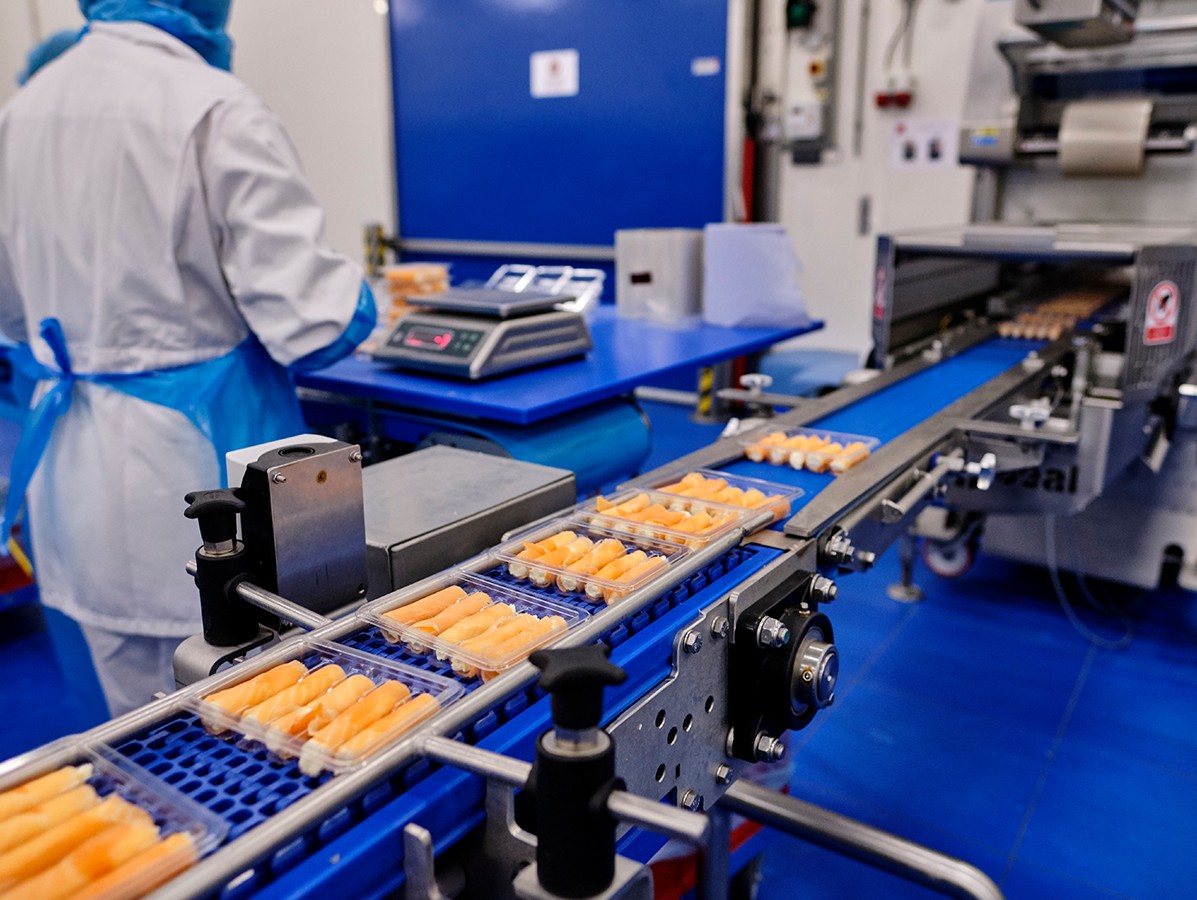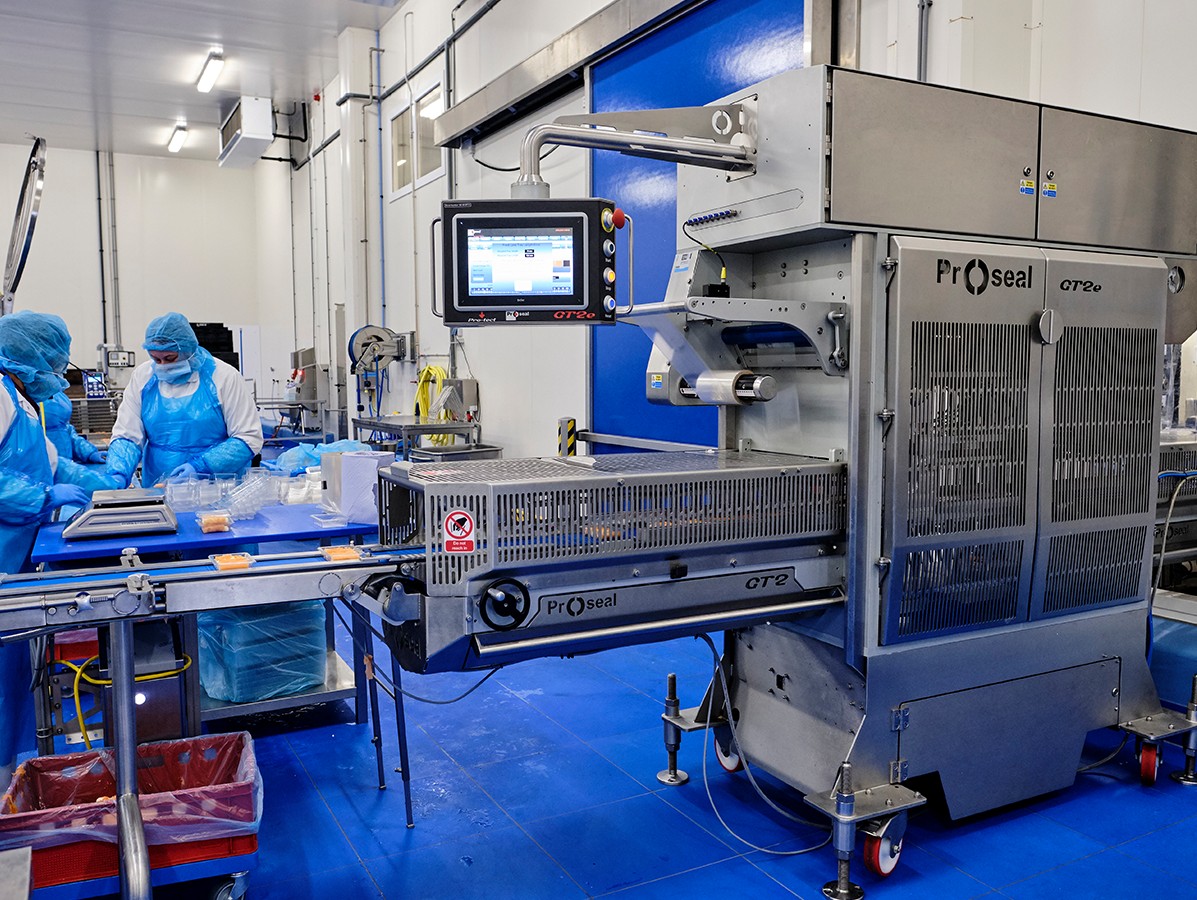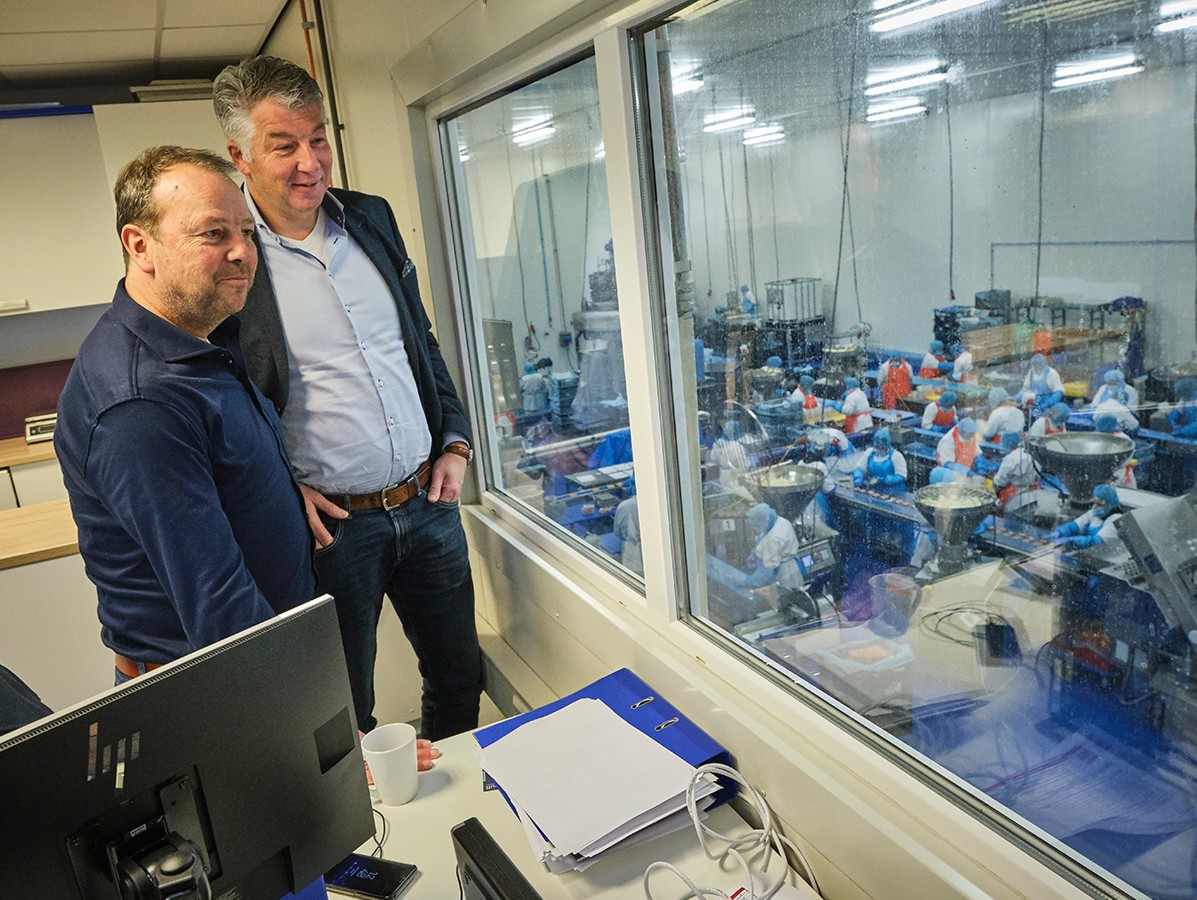
In addition to herring products, Haasnoot Food Family produces around a hundred varieties of tapas. To achieve this, Haasnoot works closely with Sismatec, among others. Vision makes you buy extra and nicely packaged snacks are a growing segment.
The family business officially exists seventy years, says Martin Haasnoot, director Haasnoot Food Family in Katwijk. "We experienced the growth in sales of salted herring after 1965 when more and more exports became possible. But a quarter of a century later, sales of herring via wholesalers shrank while sales via retail increased. We responded to this. We now produce herring and fish products in Enschede, spreads and dips in Almelo and tapas here in Katwijk. This market is growing. Last year, for example, we still had overcapacity with a single lid machine, now we certainly no longer do. In 2017 we put the first Proseal top sealer from Sismatec into use and recently number four was installed".
Easy snacking is increasing in both sales and assortment. Haasnoot produces around one hundred different tapas, sometimes as many as thirty varieties a day, under the flag of 1Bite Foods B.V., one of the companies that Haasnoot has acquired. "It was a small company with great ideas. We were able to supply the organisation around it, such as the development and production of tapas and the machinery. In order to be able to innovate further, we have our own test kitchen. Partly we follow the trend, partly we develop new products, mainly together with customers. They are in fact our partners. After all, we grow because of each other. In just a few years, our clients' easy snacking shelff has expanded by many metres. Convenience continues to grow rapidly.

The wet production department has eleven production lines including the Treif Orbital slicer and the Rex vacuum filler, both from Sismatec. Eventually, all tapas in trays go via four Proseal sealers to the dry department where initially everything goes through the metal detector and is then collected, sort by sort and fitted with lids into the cold store.
All products are daily fresh and a base stock is kept in one of the cold stores, with a maximum of three days between production and delivery. Products are sorted in all cold stores. From there they go to the labelling lines where orders are then placed in crates. At least six trays of tapas fit in each crate, but supermarket distribution centres often order crates with only four or even two trays. This takes up a lot of extra volume at the expense of transport, manpower and time. "A point of attention", Haasnoot agrees. The advantage for supermarkets is their low risk of loss on their side of the food chain. Also understandable."
Everything runs extremely smoothly thanks to the careful logistical planning. Work is done partly by machine, partly by hand. In order to further automate the production Haasnoot stays in constant dialogue with Sismatec. This company made its entrance at Haasnoot in 2016. Martin Haasnoot: "Our machines were no longer adequate; they couldn't handle the volumes and we suffered breakdowns. In Sismatec we found what we needed. We started with one Proseal top sealer and soon there was a second one. Finally, just before Christmas number four was installed. In the other factories we also work more and more with Sismatec. We like the machines; we get professional production support and the cooperation runs well". That is why Haasnoot has now involved Sismatec in the total automation process. A pleasant match, says director Gerrit Tijhof of Sismatec. "Haasnoot is one of the companies where we help to find complete line solutions, we think pragmatically. We want meaningful optimisation. In other words, we both choose to create a good balance between costs, efficiency and ergonomic benefits".

Photo: Martin Haasnoot (left) en Gerrit Tijhof.
Just as customers are partners nowadays, ideas about food are changing. The Haasnoot organisation thinks more and more in 'eating moments' than in products. Martin Haasnoot: "We look at categories. 1Bite is one of them, Neptune herring products another. In addition, presentation and packaging are points of attention. Compostable plastic could be a nice next step. Not cardboard; cardboard costs trees and makes our products invisible. Tapas have all kinds of colours and shapes, which looks inviting on the shelf. We are currently flushing products with gas and sealing the trays. We are looking at the possibilities of resealable seals instead of plastic lids. With the current production, that would save a ton of plastic a year."
Source: © Vakblad Voedingsindustrie 2020